29 April 2022
Mériadec Le Mouillour, Director-General of the "Chambre de commerce et d'industrie métropolitaine Bretagne Ouest (CCIMBO)" in France, tells ESPO this month all about the different ports managed by CCIMBO, the consequences that Brexit had on the ports and the opportunities that come with the revision of the TEN-T guidelines. He also shares his thoughts on hydrogen and the potential impact of the maritime pillar of the Fit for 55 package.
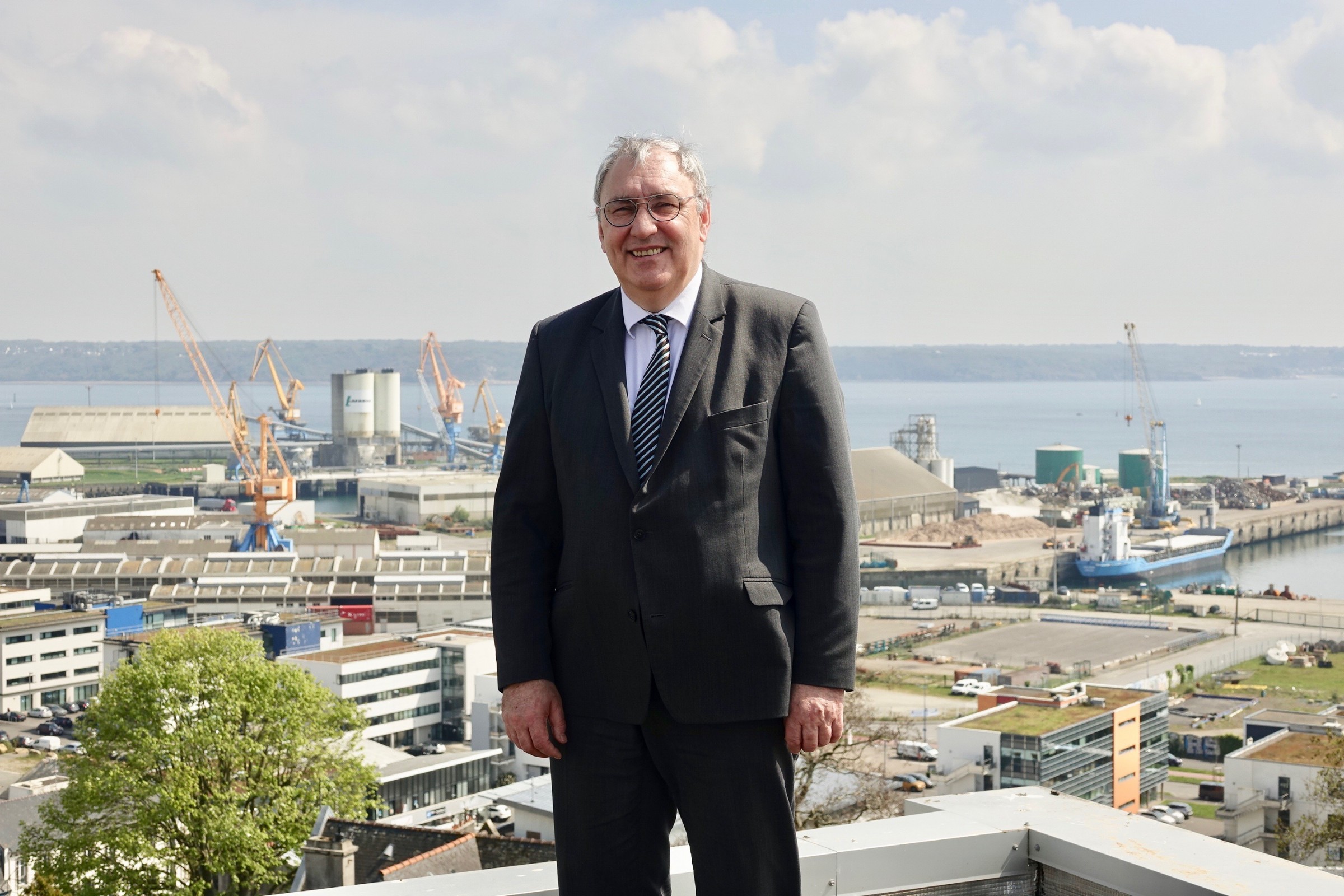 © CCIMBO BKermarec
© CCIMBO BKermarec
You are the Director-General of the "Chambre de commerce et d'industrie métropolitaine Bretagne Ouest" (CCIMBO). The CCIMBO functions as port managing body for the Port of Brest and a number of other ports in Brittany. Can you briefly tell us a bit more about CCIMBO? Which ports does it manage? What are the special features of a chamber of commerce managing ports and how did this set-up come about? Who is the owner of the port?
The French CCIs have been the historical operators of commercial and fishing ports. Today, the CCIMBO manages directly or through subsidiaries 14 ports belonging to Breton local authorities. These 14 ports have multiple activities: 13 ports have a fishing activity based on 9 auctions, 5 ports have a yachting activity, the two commercial ports of Roscoff and Brest operate as a cluster, with a general port (Brest) and a more specialised port for ferries and the RORO (Roscoff). Among these 14 ports, 5 have a shipbuilding-repair activity. Two sites, Concarneau and Brest, have large dry docks, up to 420 meters long, and concentrate 90% of our ship repair and construction activity. In recent years, the port of Brest has diversified into the field of MREs and the port of Concarneau into the field of large yachts and ocean racing.
Our service offer as a port manager is very complete. It relies on teams of specialists in many fields (infrastructure, storage of materials of all kinds, etc.). In total, we employ more than 350 people, most of whom are technicians and engineers.
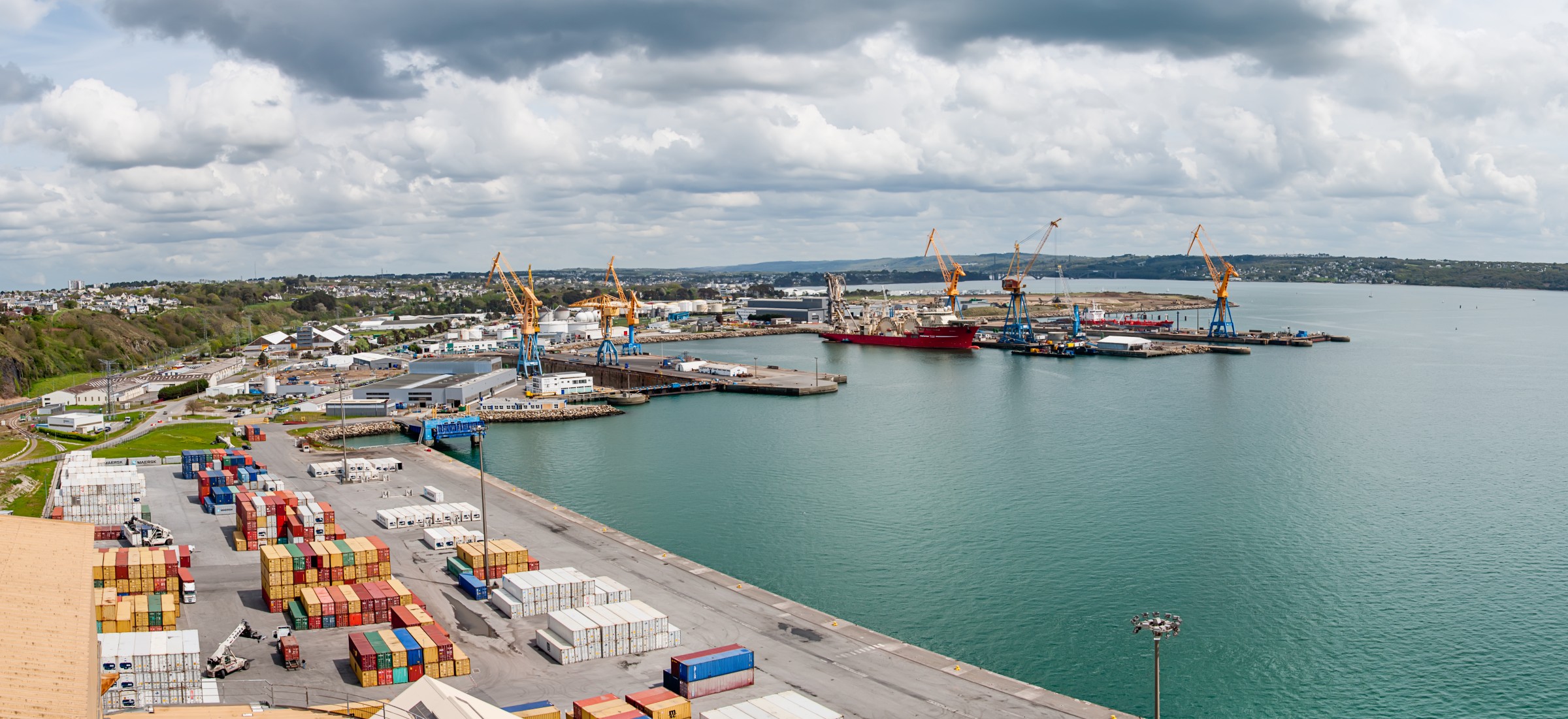 © CCIMBO Pachoutine
© CCIMBO Pachoutine
Since the start of the COVID-19 pandemic, the cost of shipping containers has increased significantly. Did this have an impact on the traffic in the ports you manage? How do you see prices of shipping evolve in the future? Do you think it will be a temporary phenomenon?
The import and export flows of containers in the port of Brest are unbalanced, which constitutes a structural fragility. Since the beginning of the COVID-19 pandemic, we have had to deal with a shortage of empty containers. Prices have exploded. This has had the effect of redirecting certain goods to local markets rather than exporting them, as shippers could thus better control their margins. Recently, the war in Ukraine and the management of the pandemic in China have added further constraints. The feeder ports are likely to continue to suffer for a while because they are not a priority for shipping companies. If things were to remain like this, we should not forget to look for accompanying solutions to relaunch feedering, which is a kind of transport that is ecologically more virtuous than a flow of trucks driving for 800 km.
Since January 2021, EU-UK relations are being regulated by the EU-UK Trade and Cooperation Agreement (EU-UK TCA). How has Brexit impacted the ports you manage? What are or have been the main challenges you are facing in this regard?
The ships that reach Roscoff are large ships. A ship like the Pont-Aven loads 600 vehicles. We understand that with the lengthening of formalities, operations become an important challenge. We have completely reviewed the organisation of the terminal, strengthened the IT resources, enlarged the vehicle storage areas, increased the number of check-in stations. It works, and the next challenge is the start of the Entry Exit System (EES). Another satisfaction is the level of crossings to Ireland, which is a positive consequence of Brexit and the strengthening of our partnership with Brittany Ferries.
The agreement with the United Kingdom specifies that France has until 1 June 2026 to gradually reduce its fishing quotas in British waters by 25%. The impact of this agreement is negative on deep-sea fishing in Le Guilvinec. In our ports, the catches are of good quality and the average auction prices are good, which gives us the opportunity to work with the fishing industry to reinvent our economic model. Our ports handle 30% of French fishing, and we will remain the major French player.
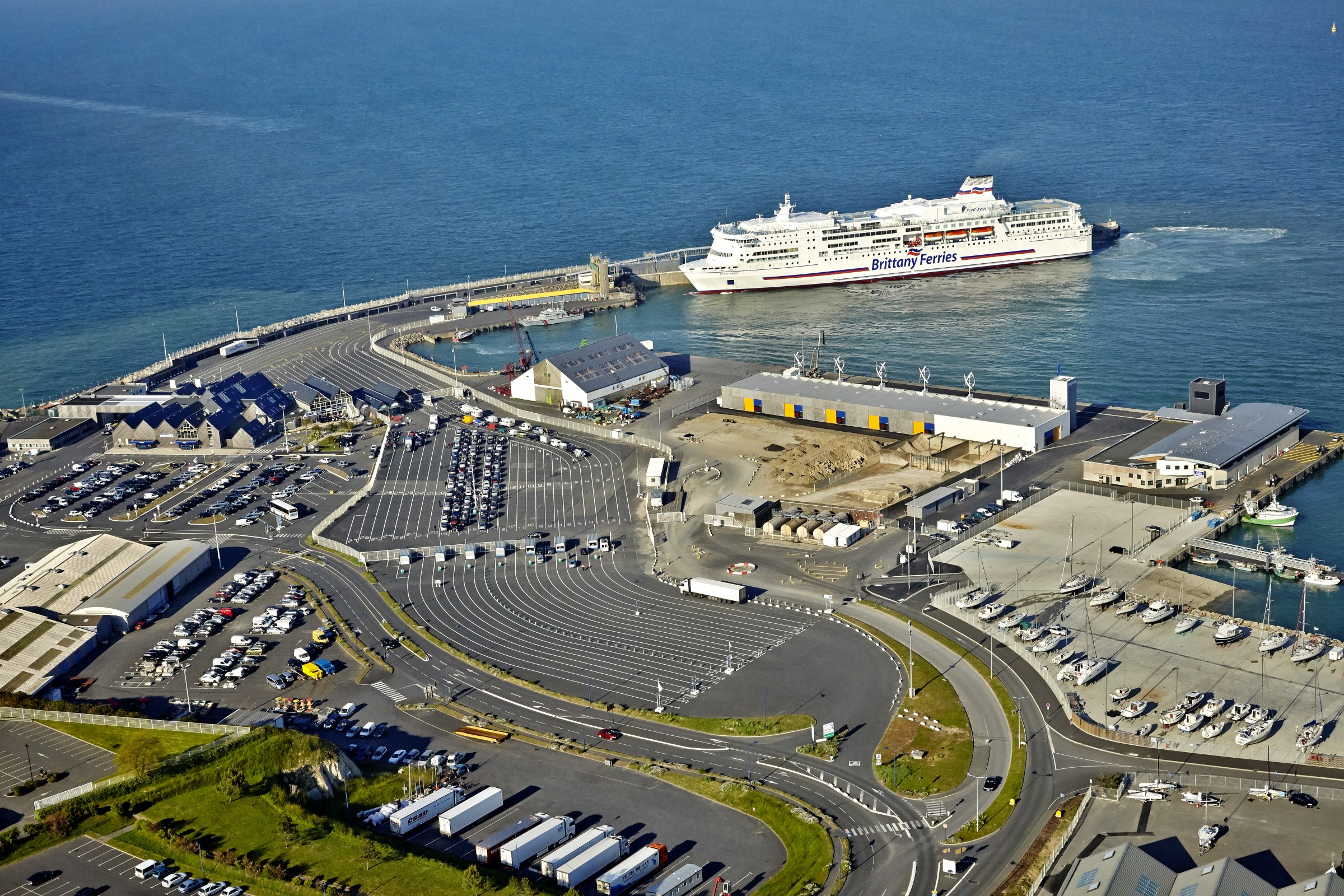 © GPO
© GPO
The tensions between the EU and Russia are resulting in sanctions being imposed by the EU on Russia. In its 5th package of sanctions, the EU installed a ban on Russian ships from EU ports and a number of import/export restrictions to and from Russia. Are you following up these developments? What has been the effect of the sanctions so far on your ports? Do you foresee any challenges?
We are mainly an importer of energy products from Russia and these shipments have continued to arrive at the port. To date, apart from some minor traffic, we have had little impact. The fact that the WTO predicts that trade growth will be halved is a worrying element, as would be the very negative impact on trade and innovation if the world economy were to disintegrate into separate blocs due to geopolitical considerations.
The current TEN-T guidelines (2013) are under review. The new proposal is increasing the importance of the maritime pillar, and is including the Port of Brest as a core port of the TEN-T network. What new opportunities and/or obligations would result from the new status for Port of Brest?
The revision of the TEN-T guidelines is an opportunity for the Port of Brest, firstly, to give a boost to its investments, and secondly to position itself as a provider of low-carbon transport solutions. We are expecting major developments in rail freight combined with the opening of new maritime lines. The core network obligations are an opportunity to move forward, the industry of tomorrow will be decarbonised and this decarbonisation begins in the port. Moreover, as the port will be connected to the Atlantic Corridor, CCIMBO is working with partners in the industry to bring out more frugal technologies implementing the ERTMS standard, a key element to meet the European requirements.
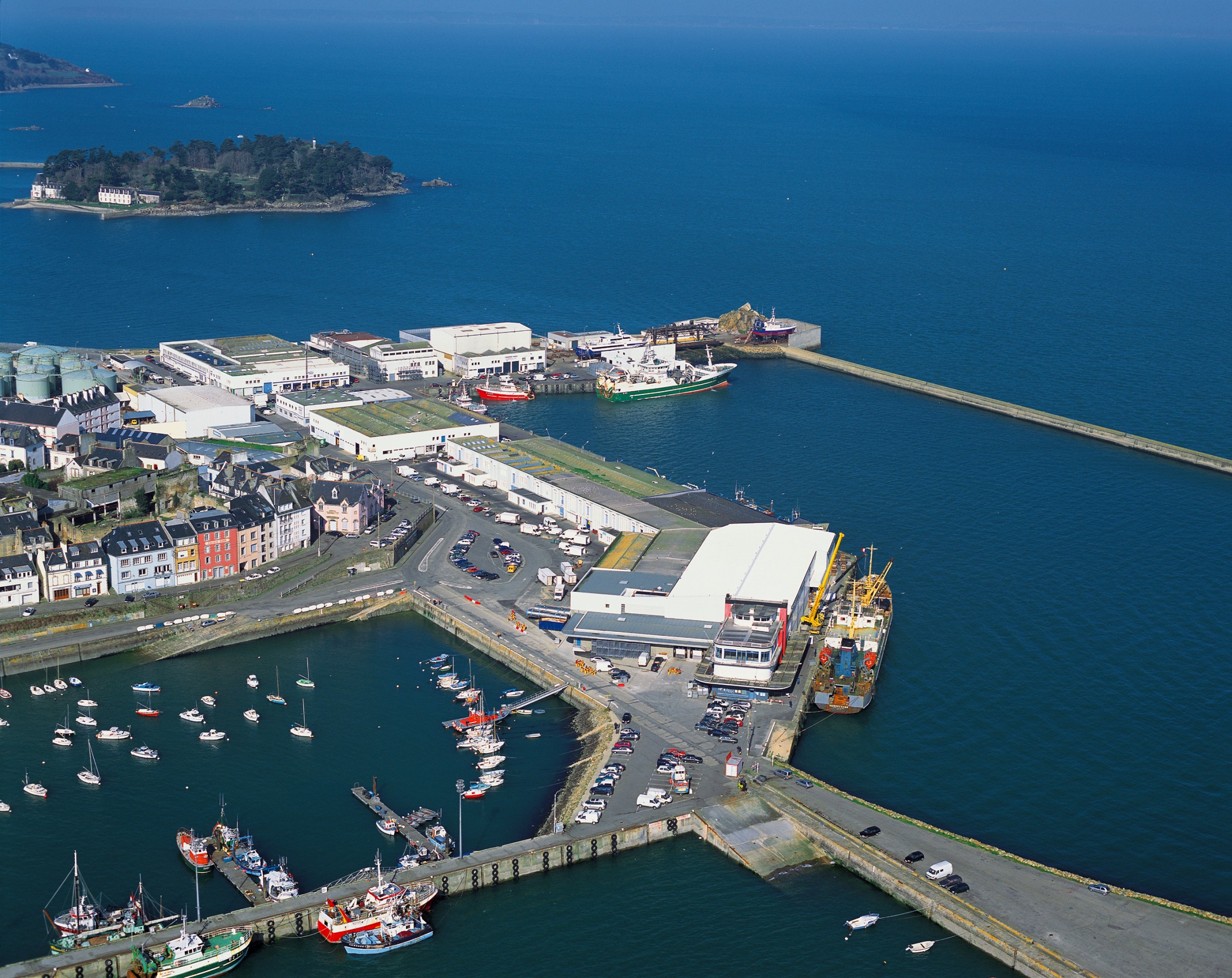 © CCIMBO
© CCIMBO
To get the goods efficiently to the desired destination, a good connection between the port and the hinterland is needed. Could you briefly tell us how the port of Brest is connected with the hinterland? Can this be further improved in terms of infrastructure development or operations?
We are connected by road and rail. The port's rail terminal requires investment to handle long trains and offer economic solutions for mass transit. The port of Brest-Roscoff works in partnership with Breton clusters such as Bretagne Supply Chain and Produit en Bretagne, which bring together manufacturers, shippers, logisticians and transporters. These clusters help to bring together actors around logistics projects. The dynamic is good, now we need to make the projects more concrete: here again, working on rail freight and feedering.
Quite a few European ports are preparing for the arrival of the hydrogen economy in Europe. Is hydrogen relevant for the ports managed by CCIMBO? Are there any hydrogen projects carried out in one of the ports?
Our ports are major consumers of energy to operate our infrastructures, our storage facilities and our cold chains. Hydrogen is taken into account in our forecasts. Because we are spread over 14 sites, we have carried out an inventory of uses to build partnerships and share uses. We are in discussion with several potential partners. Our work also includes other energies such as those obtained by cogeneration, whose consumption can be shared with that of the industrialists present in our ports.
.jpg) © CCIMBO
© CCIMBO
The maritime pillar of the Fit for 55-package introduces a requirement to install and use on-shore power supply. What will be the impact on the Port of Brest, especially in terms of competitiveness and investments in the port area?
When we look at the maritime pillar of the Fit for 55 package, we are forced to look at both sides of the coin. Because the port of Brest is also a ship repair port, we have the opportunity to at least partially share the costs of investment and operation of shore power facilities between ships undergoing repair and those in commercial operation, notably cruise ships, which is the good side that should generate revenue. We are more concerned about the impact in terms of competitiveness for feeder vessels entering the container terminal, as this traffic is already suffering a lot and it is not certain that the container handled can bear any additional cost.
What are the main focal points of the CCIMBO’s port environmental policy?
Protecting the environment is part of our mandate as Port Manager, which requires a high degree of care and consideration in all of our business decisions. Our environmental policy focuses on maintaining healthy ecosystems, taking action to mitigate and adapt to climate change, and advancing responsible practices in infrastructure and throughout the global supply chain. We collaborate with customers, industry, government, and local communities to increase understanding, share best practices and drive continual environmental improvement.
The objective is to create positive effects through the improvement of the port and urban environments, and in addition to create value through the positive development of the port local hinterland.
Our main ports are certified with an Environmental Management System and have improved communication towards local communities regarding air quality monitoring and noise. They provide guidance to tenants and other users of the port by setting positive environmental performance. For that purpose, we are communicating the environmental policy to employees, clients and the public.
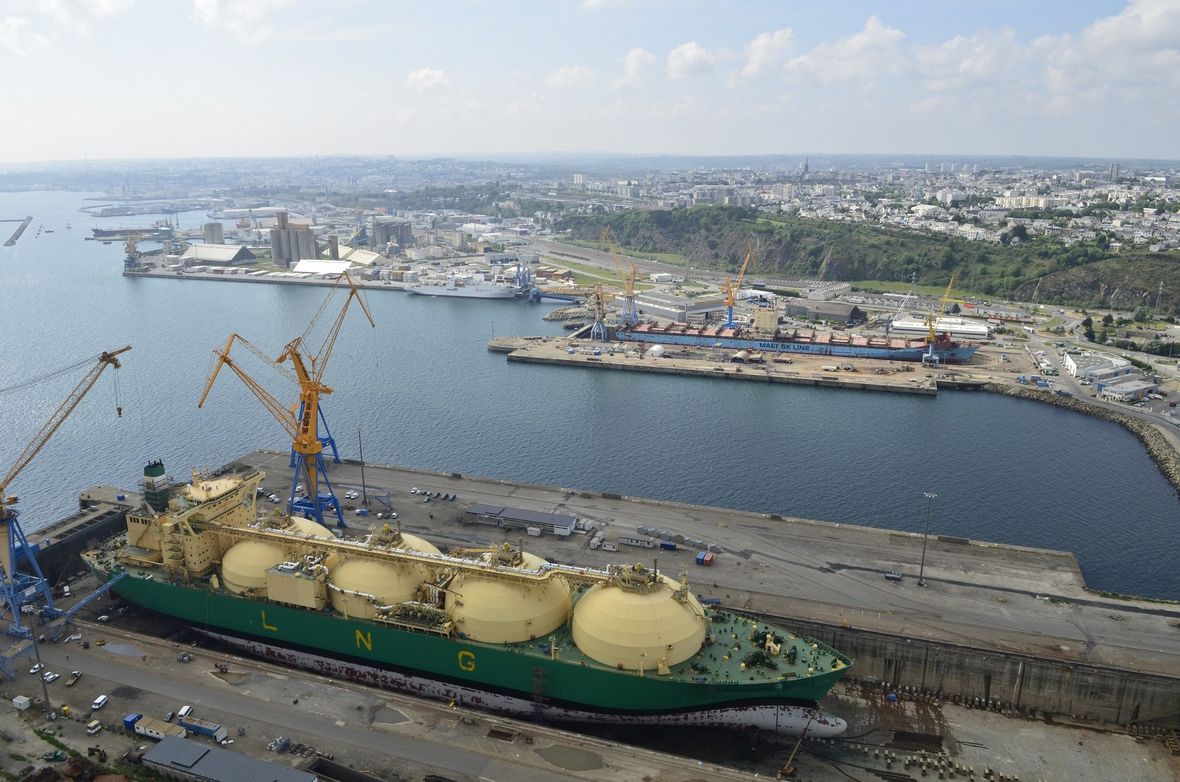 © Thierry Joyeux Brest métropole
© Thierry Joyeux Brest métropole
How did you get into maritime transport? How did your career path lead to this position?
I started my career at Bouygues Offshore (BOS), which became SAIPEM, and worked on various offshore construction projects. Logistics is a key component in the success of offshore projects. It is a fascinating job and yet at one point I chose a more sedentary life. That's how I ended up in the ports.
Related documents
No attachments.
